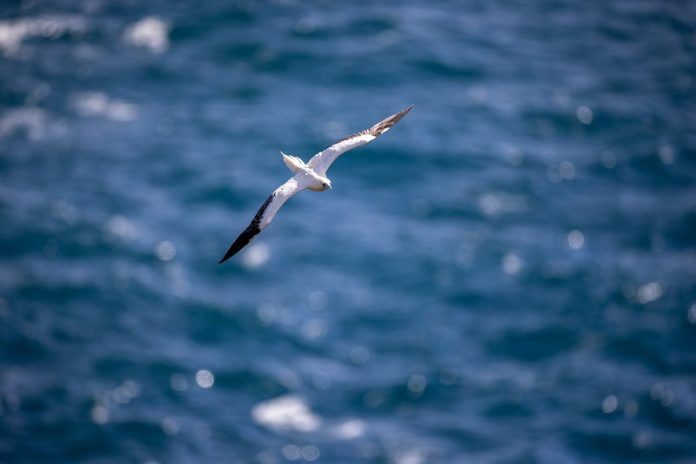
On remote desert islands in Japan, researchers have discovered an unusual bathroom habit among seabirds.
Streaked shearwaters, a species of seabird, prefer to poop while flying rather than while resting on the ocean’s surface.
They do this every four to ten minutes, creating a steady rain of nutrients that may help fertilize the open ocean.
The finding was reported in Current Biology by a team led by Leo Uesaka from the University of Tokyo. Uesaka hadn’t set out to study seabird bathroom routines.
Instead, he was analyzing how seabirds run on the surface of the sea to take off. But while reviewing video footage, he noticed something odd: the birds were relieving themselves very frequently while in flight.
“At first I thought it was funny,” Uesaka said. “But then I realized it could actually be important for marine ecology.”
Seabird droppings, rich in nitrogen and phosphorus, are known to enrich soil and coastal waters, supporting plant and marine life near shore. However, much less is known about how bird feces influence the vast open ocean, where seabirds spend most of their time.
With an estimated 424 million shearwaters and related species worldwide, their waste could be a significant source of nutrients for plankton and other marine organisms far from land.
To investigate further, Uesaka and his team strapped tiny backward-facing cameras, about the size of an eraser, to the bellies of 15 streaked shearwaters. The cameras recorded nearly 200 defecation events.
Almost all of them happened while the birds were airborne, often just after taking off. In some cases, the birds appeared to launch into the air solely to poop, returning to the water within a minute.
This suggests that the birds actively avoid pooping while floating. Uesaka explained that streaked shearwaters have long, narrow wings designed for gliding. Taking off requires vigorous flapping, which is tiring for them.
So the fact that they go to the trouble of taking off before relieving themselves suggests a strong reason for the behavior. It may help them avoid fouling their feathers, reduce the risk of attracting predators, or simply make pooping easier compared to a floating position.
While flying, the birds produced droppings every four to ten minutes. The researchers estimated that each bird excretes about 30 grams of feces per hour—roughly five percent of its body mass.
The reason behind this steady rhythm is still unknown, but Uesaka suspects it has ecological significance. In future work, he plans to combine cameras and temperature sensors with GPS trackers to map where seabirds deposit their droppings across the ocean. By doing so, he hopes to better understand how seabird feces contribute to nutrient cycles at sea.
“Feces are important,” Uesaka said. “But people don’t really think about it.”



